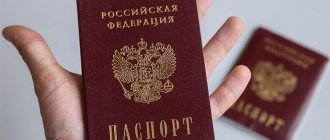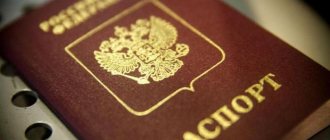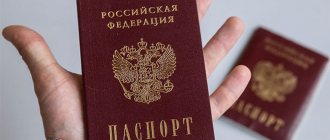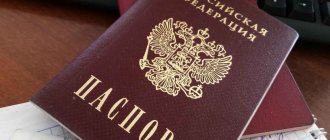Citizens of Russia are not prohibited from having dual or other citizenship, Art. 62 of the Constitution of the Russian Federation and Art. 6 of the Federal Law “On Citizenship of the Russian Federation”.
As life shows, Russians can obtain dual citizenship or even citizenship of several states. This situation is quite acceptable, but it raises a fairly large number of questions regarding how obtaining dual citizenship is regulated by law. Is it legal to use several passports, if necessary and without special difficulties, which act as proof of citizenship of other countries.
If you dig deeper, you can state the fact that dual citizenship, officially allowed for Russian citizens in 2021, can be clearly predetermined if the following conditions are met:
- if the Russian Federation has an international treaty;
- in a situation where an international agreement has been concluded with the country that is the second one in terms of a particular person’s affiliation with it.
If we consider this situation on the basis of legislation, then the Russian Federation only has such an agreement, which was actually concluded in 1995 and operates in accordance with the rules, with Tajikistan. In this situation, Tajiks, after they have received Russian citizenship using the treaty as a basis, have every right not to renounce their previous citizenship, retaining it, while enjoying dual citizenship with the same rights in Russia and Tajikistan.
It is worth noting that this state of affairs does not at all indicate that Russian citizens do not have the opportunity to enjoy dual citizenship in its pure form, in addition to the above situations.
Is it possible in Russia
The laws of the Russian Federation do not prohibit the registration of dual citizenship. According to Art. 62 of the Russian Constitution:
- a holder of civil status in the Russian Federation has the right to obtain civil status in another country;
- citizenship of another country does not derogate from the rights of a Russian citizen and does not exempt him from the obligations that arise from Russian citizenship;
- Foreigners and people without citizenship have rights in the Russian Federation and fulfill obligations on an equal basis with Russians, except in cases established by the Federal Law or an international agreement.
Who can have dual citizenship
Russia recognizes such citizenship only if there is an international agreement with a foreign state (Article 62 of the Russian Constitution).
For example, one of the countries with which the Russian Federation has concluded a similar agreement is Tajikistan. In view of this, if a Russian has acquired civil status in a country with which Russia has not signed special international agreements, it is considered that he has received 2nd citizenship.
Free legal consultation
+7 800 100-61-94
However, it is different from dual citizenship, from a legal point of view. For Russia, such a person will be considered simply a Russian. This means that you can stay in the Russian Federation, enter and exit foreign countries, and apply to government institutions of the Russian Federation (including those located abroad) only with Russian documents. At the same time, a Russian citizen is not prohibited from using a second passport in other countries.
It is prohibited to obtain civil status in a foreign country:
- people who enter the civil service, unless the contrary is provided for in the relevant agreements;
- managers or participants of the media;
- media editorial staff;
- owners of more than twenty percent of shares in the media;
- employees of organizations involved in broadcasting;
- participants of the Public Chamber of Russia;
- members of voter commissions with decisive voting rights.
Where you can and cannot have a passport of two countries
Some countries allow you to obtain a second citizenship without giving up your first one. There are countries where a second citizenship is not recognized, and if it is obtained, the first citizenship is deprived. There are countries that allow you to have two passports only under certain conditions, for example, if it is impossible to renounce your first citizenship.
In the following countries, gaining a second citizenship entails losing the first:
- Azerbaijan. If you get a second passport, you lose citizenship of that country.
- Kazakhstan. If you get a second passport, you lose citizenship of that country.
- China. It does not recognize a second citizenship, and upon receiving it you lose the citizenship of that country.
- Monaco. To obtain citizenship of this country, you must renounce your first citizenship. He then acquires another citizenship and loses his Monegasque passport.
- Mongolia. To become a citizen of Mongolia, you must renounce your first citizenship. Second citizenship is prohibited.
- UAE. To obtain UAE citizenship, you must renounce your previous citizenship. The exception is women married to a UAE citizen.
- Singapore. When acquiring a second citizenship, a Singaporean loses his first.
- Uzbekistan. When acquiring a second citizenship, an Uzbek automatically loses his first.
- Estonia. An Estonian citizen cannot have two citizenships.
- South Korea. To obtain South Korean citizenship, you must renounce your first citizenship.
A person from Azerbaijan who voluntarily receives second citizenship is deprived of Azerbaijani citizenship. Similar rules apply in Ukraine, Slovakia, and Uzbekistan.
A citizen of Uzbekistan, Kazakhstan, or Azerbaijan who has received citizenship of a foreign state is required to submit written information to the relevant executive authority within 1 month, otherwise he will face criminal liability. Similar rules are found in other countries.
How to get
The procedure for obtaining dual citizenship depends on the specific state. Remember that it is possible to obtain citizenship status in another country if Russia has concluded relevant agreements with it.
In order for a foreigner to obtain dual citizenship in the Russian Federation, the following documents will be required:
- documents that serve as the basis for obtaining civil status in Russia; passport of a foreign country. Before contacting a government agency, it will need to be translated into Russian;
- a document that confirms that the foreigner is legally staying in the Russian Federation; a payment receipt confirming payment of the state duty.
are required to notify the Main Directorate for Migration of the Ministry of Internal Affairs of the presence of a foreign passport . The notification letter can be provided at the place of residence/stay, or sent by registered mail via the postal service. People living outside Russia send notification only upon arrival in the Russian Federation. The sixty-day period begins to count from the date on which the border was crossed.
Documents are provided by the applicant or his representative with a power of attorney certified by a notary. If we are talking about children, then parents or guardians act as representatives of their interests. The form of notification is established by Article 6, Part 8 of the Federal Law “On Citizenship of the Russian Federation.”
The list of required documents, in addition to the completed notification form, includes photocopies of:
- Russian passport or birth certificate (for children);
- passports of a citizen of another country;
- documents confirming civil status in another country;
- documents from guardianship and trusteeship institutions if the applicant is incapacitated or partially capable.
Important! It is mandatory to register dual citizenship with government agencies.
This measure is intended to create in Russia a database of persons with civil status in a foreign country.
Common Mistakes
Error 1: Applying for a second or dual citizenship in a country whose laws do not allow the presence of another identity document.
– Despite the fact that Russian law allows the issuance of a second identity card abroad, if a foreign state prohibits this, then it is impossible to obtain such a document. For example, the ban applies even to a number of former Soviet countries, Ukraine, Belarus, and Lithuania. When submitting an application for a national document, you must first provide confirmation of your renunciation of Russian citizenship.
Treaties with countries on dual citizenship
The list of states with which the Russian Federation has entered into an international agreement is quite short. It includes:
- Tajikistan (since 1995).
- Turkmenistan (since 1993).
Separately, it is worth mentioning Abkhazia, with which a friendship treaty was signed .
Ninety percent of Abkhazians have Russian citizenship status. However, the above agreement cannot be considered official. This is rather a benefit for the state, only partially recognized.
Who cannot have a second citizenship
The law expressly prohibits the following people from having a second citizenship:
- President of Russian Federation
- Chairman of the Government of the Russian Federation
- Deputy Prime Ministers of the Russian Federation
- Civil and government employees
- Voting members of election commissions
There are countries that directly prohibit having a second citizenship. And obtaining it leads to the loss of your first citizenship. This happens, for example, in Estonia, Kazakhstan and some other countries.
Dual citizenship and two citizenships - what is the difference
Dual citizenship is when a person has passports from two countries that have entered into a special agreement. According to the agreement, a person with dual citizenship has the right to choose which of the two states to serve. A child born to such a person immediately becomes a citizen of two countries.
The definition of “two citizenships” means the absence of an agreement between states . Countries consider individuals with multiple nationalities only as their citizens. This means that the presence of civil status in several countries does not detract from a person’s rights and freedoms, nor does it relieve him of obligations to any state.
Second citizenship by investment
This method is suitable for those who wish to obtain a passport from a country that does not allow a foreigner to become its citizen without additional conditions. There are two options for compatriots: to renounce Russian citizenship or to invest financially in the economy of the country for which they are applying for citizenship.
Among the states offering second citizenship for investment, mention should be made of Bulgaria, Cambodia, Vanuatu, Malta, Moldova, Montenegro, Cyprus, and Austria. A complete current list of countries that actually sell citizenship, as of 2021, can be found in open sources.
Advice: before planning to obtain a second citizenship for investments, it is worth clarifying their amount and investment conditions, since such aspects may differ significantly depending on the chosen country.
Dual Citizenship Law
The Federal Law on the acquisition of dual citizenship with all the norms that are reflected in the articles of other legislative acts was adopted and approved on June 1, 2002.
This Federal Law examines in detail the rules and requirements for obtaining dual citizenship ; all the main principles of the Russian legislative framework relating to this issue are indicated.
Also, the Federal Law clearly prioritizes the grounds for obtaining dual citizenship, establishes an algorithm for performing this procedure, and defines the conditions that must be observed.
Among other things, one of the norms of this Federal Law is reflected in the Criminal Code. So, if a person does not notify government agencies about the presence of a passport of another country within the prescribed period, he may be fined two hundred thousand rubles or assigned correctional labor (up to four hundred hours) . In view of this, it is recommended to notify the Main Directorate for Migration of the Ministry of Internal Affairs in time to avoid punishment in the form of a fine or community service.
What are the options?
There are many ways to obtain a second citizenship, and none of them are easy. The methods can be divided into two groups: obtaining citizenship through family ties or through investment.
Former USSR countries
Since June 2021, residents of Ukraine and Georgia have received the right to visa-free entry into the territory of 26 European countries. This aroused the interest of the Russians. Then the number of requests in Yandex “to obtain Ukrainian citizenship” increased from 6 to 10 thousand per month.
If you want to obtain Ukrainian citizenship, then to do this you will need to fulfill one of the following conditions:
- Be born yourself or have close relatives (parents, grandparents, brother or sister) who were born on the territory of Ukraine before August 24, 1991.
- Live on the territory of Ukraine for at least 5 years or be married to a citizen of Ukraine for at least two years, know the Ukrainian language and have legal sources of income in the country.
You can also get a passport if you have outstanding services to the country. The president makes the decision. For most people, this option is not suitable. In other cases, you will have to wait 1–1.5 years for a passport. Ukraine does not recognize dual citizenship, so you will have to give up one of your passports.
A bonus to a Ukrainian foreign passport is 10-year US visas. Americans give visas to Russians only for three years.
Any person who:
- He has been living in Georgia for the last 5 years.
- Pass the Georgian language exam.
- Knows the history of Georgia.
- Has an official source of income.
- Has real estate in Georgia.
- Will renounce his second citizenship (only a decree of the president of the country can allow him to retain his second citizenship).
Also, Georgian citizenship will be given upon marriage to a citizen of Georgia, or if the person lived in the country for more than five years before March 31, 1993.
To obtain citizenship you need to contact the House of Justice. All documents are submitted in Georgian or must be translated into it.
As you can see, in each case you need to renounce your second citizenship, which is unlikely to be done by anyone just for the sake of visa-free entry into Europe.
African countries
States located on the African continent rarely attract interest from immigrants. For those people who, despite the low level of the economy, plan to apply for a second passport there, it is useful to know where this is possible. Countries allowing second citizenship:
- Angola,
- Zambia,
- Kenya,
- Tunisia,
- SOUTH AFRICA,
- Morocco,
- Libya,
- Ghana.
Egyptians, before writing an application for a passport in another country, are required to inform the Egyptian Migration Service of their intentions.
Two definitions - two statuses
Possession of passports of two states at the same time usually means that their owner has dual or second citizenship. Despite all the external similarities, these two statuses have a fundamental difference, which is expressed in the fact that in the first case a person is a citizen of two countries, between which rules have been established regulating this status, i.e. there is an agreement on dual citizenship. If such a document does not exist and it is not officially decided between the powers how to consider the situation with a person having two passports, second citizenship takes place. Moreover, each state considers the person involved to be its own citizen, not noticing the other indigenous people, and sometimes demanding to get rid of him.
If we talk about Russia, the country has an agreement establishing the procedure for having multiple citizenship and the rules for residence of a person with such status on the territory of each state only with Tajikistan. The same agreement once existed between the Russian Federation and Turkmenistan, but after May 18, 2015, this document lost force at the initiative of the Turkmen side. Dual citizenship issued before this date remains valid, but only on the territory of the Russian Federation: the legislation of Turkmenistan requires the renunciation of any other citizenship in the presence of Turkmenistan.
Russia has an agreement on dual citizenship only with Tajikistan
In world practice, there are a number of precedents for states granting dual citizenship to foreigners or their citizens. Spain, for example, has corresponding agreements with most Latin American countries, as well as with Andorra, the Philippines, Equatorial Guinea and Portugal. The UK allows dual citizenship with the states of the British Commonwealth, Italy - with Argentina, Canada - with France, etc. In Latvia, dual citizenship is allowed for persons who emigrated from the country in 1940-1990 (as well as their descendants), but subsequently returned to my homeland.
It should be said that second citizenship, when countries, if they do not welcome second passports, then do not object to their citizens having them, is much more common. Some countries are categorically against dual citizenship: among them are Germany, Denmark, Monaco, as well as Kazakhstan, Belarus, Azerbaijan, Ukraine, etc. At the same time, residents of post-Soviet countries sometimes simply do not inform the authorities about obtaining a second passport, and in Germany, for example , children of immigrants can obtain another citizenship.
About dual citizenship in Russia
There are many reasons why a person may need a second citizenship, but in any case, the applicant must be guided by the relevant legislation regulating the adoption of another citizenship. If a Russian is planning to accept the citizenship of another state, then this right can be exercised in accordance with the Constitution of the country and the Law “On Citizenship”, the last amendments to which were made in 2014 . Certain innovations in the rules for obtaining citizenship of another country take into account the fact that a person who has more than one citizenship bears certain obligations to each of the countries that granted him citizenship. Thus, a Russian who has received another citizenship, when making any decision related to Russia, will be guided, among other things, by the interests of the second country. In this regard, every Russian who acquires citizenship of another country is required to report this to the Russian authorities. In addition, not every citizen of the Russian Federation can obtain a passport of another state: there are certain restrictions in this regard for persons in the public service.
In general, the Russian state is not against Russians having a second citizenship, if this does not contradict the legislation of each of the parties. In addition, Russian citizenship can be granted to a foreigner without requiring him to renounce his existing citizenship: renunciation of previous citizenship can only be conditioned by the legislation of the second country.
Video: about some aspects of dual citizenship in the Russian Federation
On the status of a Russian citizen after obtaining dual citizenship
Multiple citizenship does not in any way affect the status of a Russian citizen, unless he is employed in the public service and is not a politician. Israeli citizenship, for example, became the reason for Vitaly Malkin’s resignation from the Federation Council, and British citizenship did not allow Vladimir Kara-Murza Jr. to apply for a seat in the Yaroslavl City Duma.
According to Russian legislation, if a citizen of the country has acquired another citizenship, but continues to reside in the Russian Federation on a permanent basis (more than 183 days a year), he must pay all taxes to the Russian budget, regardless of where the income was received. Otherwise (if a citizen lives in Russia for less than 183 days a year), he is not considered a tax resident of the Russian Federation and the tax rules for him will change. This applies, for example, to real estate transactions: a tax deduction for the sale of real estate by a non-resident is not provided, and the tax on income from the sale will be not 13, but 30%.
At the same time, the permanent stay abroad of a Russian with dual citizenship requires compliance with the requirements of the legislation of the second country. For example, in the case of dual citizenship of the Russian Federation and Tajikistan, it is established that while permanently residing in the territory of one of these two countries, the holder of two passports can enjoy the rights and must comply with the obligations only of a citizen of the country of permanent residence (and not both countries at the same time).
Notification about obtaining a second passport
In August 2021, the Russian government amended the law: according to them, persons with a second citizenship must notify the migration service unit in writing about this fact. This rule continues to apply in 2021.
It is customary not only in Russia to inform the authorities about the presence of a second citizenship. This is practiced in many countries. The information is needed to create a database of persons with multiple citizenships and to control migration policy.
The law does not cause any inconvenience to Russian citizens. Having two passports is not prohibited. Their owners retain all the rights of citizens of the Russian Federation. Along with this, they must pay taxes on time and fulfill other responsibilities to the country.
You can learn more by learning what a Second Citizenship Notice is.
Fine for failure to notify
After Law No. 142-FZ came into force, administrative and criminal penalties are provided for non-compliance. If the data is provided late and not in full, the Russian will be fined from 500 to 1000 rubles.
If a person deliberately concealed his second citizenship from the migration authorities and this fact was discovered by employees of the Main Migration Department of the Ministry of Internal Affairs, a criminal case is opened against him. The accused may be sentenced to 400 hours of forced labor or a fine in the amount of wages or other income for a period of up to a year. Citizens of Tajikistan and Russians who reside outside the Russian Federation on a permanent basis are exempt from notification.
What is the maximum number of citizenships a person can have - why get them?
Due to different life circumstances, some of us live “in two countries.” In order to avoid various visa problems, it is better to obtain a second citizenship or residence permit in a second country, and not deal with private registration of entry visas.
However, it is worth analyzing in advance the possibility of obtaining a second passport. If the legislation of the new homeland implies the levy of tax on personal income received abroad, then you can “get” double taxation.
Citizenship of Malta or the USA will allow its holder to travel around the world without visas to Schengen, the UK, the USA and many other destinations. You can leave the Russian Federation by presenting a Russian passport, and enter the United States by presenting an American passport at customs. At the same time, you will not violate the laws of any country.
Losing a passport does not mean losing one of your citizenships. It is enough to write a statement about the loss of your passport at the consulate of the relevant country to be allowed entry. After this, you can restore your passport in the standard manner.
Where is second citizenship officially recognized?
In which countries can you automatically acquire a second citizenship without giving up your Russian citizenship in 2021? This:
- Greece.
- Israel.
- Brazil.
- Ireland.
- Malta.
- Cyprus.
- Romania.
- Portugal.
- Türkiye.
- USA.
- Canada.
- Australia.
- Chile.
- Italy.
- Czech Republic.
- Norway.
- Jamaica.
- Dominican Republic.
- Saint Kitts and Nevis.
- Grenada.
- Dominica.
- Antigua and Barbuda.
- Saint Lucia.
- Vanuatu.
Montenegro allows, as an exception, those people who received a Montenegrin passport for investment through the purchase of real estate not to refuse a Russian passport.
Legal responsibility for second citizenship
There is also a domestic rule regarding persons with dual citizenship. Such individuals do not have the opportunity to obtain a position in government agencies or the media. To a greater extent, this is why there is an obligation to warn Russian law enforcement agencies, in particular the Ministry of Internal Affairs at the place of residence, about the new status of a “citizen of two states.”
This is done as follows:
- After receiving foreign citizenship, you must visit the Russian Ministry of Internal Affairs within 60 calendar days if you are directly in Russia. If outside, then upon arrival you must notify within 30 calendar days.
- A sample notification can be downloaded through legal portals or the form can be requested from a government agency. You can use this link https://base.garant.ru/72001458/f7ee959fd36b5699076b35abf4f52c5c/, you need to download the form to your computer and fill out all the required fields. The text can be typed or filled in manually. It is not allowed to correct, include an abbreviation, or shorten anything. The specified information must correspond to the available official documents of the individual.
- There are separate notification forms for minors and guarantors. They can also be downloaded through the legal resource Garant or some other.
- An individual must attach notarized copies of all passports to the notification. The information must match the data reflected in paragraphs 2-3 of the notification - series, number and date of issue.
- Next, the prepared package of documents for all family members is sent to the Ministry of Internal Affairs at the address of residence or temporary registration. It is also permitted to send notice by registered mail.
There is no need to ignore such a routine, otherwise you will face administrative and criminal liability. According to Russian legal documents No. 62-FZ and Order of the Ministry of Internal Affairs of the Russian Federation No. 267 dated May 3, 2018, the following measures are applied:
- transmission of a notification exceeding the prescribed period, that is, late, entails a fine of 1 thousand rubles;
- if you refuse to notify the Russian authorities, a fine of 200 thousand rubles is provided;
- in some cases, a decision is made on a fine of 200 thousand rubles and corrective labor of about 400 hours;
- at the time of the trial, the individual does not have the right to leave Russia.
European countries
EU countries attract migrants with good living conditions and new opportunities. Having received a passport anywhere in the EU, you can live, study and travel throughout its territory.
The European Union consists of small countries. Each of them has its own view on granting second citizenship.
Before planning your move and obtaining documents, it is worth clarifying where the law allows you to keep your second passport. For some European countries, it is important that the citizenship applicant renounces his previous status.
German passport
Germany leads the way in countries that do not recognize second citizenship. A foreigner can receive it in rare cases. To do this, you must have good reasons and meet certain criteria:
- be an ethnic Jew or German;
- prove that the parents or the candidate himself were deprived of citizenship from 1933 to 1945 - the “Late Migrants” program.
A German passport will not be revoked if second citizenship is automatically issued to its holders, for example, for services to a foreign country. Children of foreigners born in Germany can count on a German identity card.
In other cases, the law is harsh: you can get a passport only after renouncing your previous citizenship.
Read more about how to obtain German citizenship in this article.
Israeli passport
Second citizenship is recognized in Israel. A country’s passport, without abandoning the previous one, can be obtained using the Law “On Return”, which was adopted by the government on July 5, 1950. It states that any Jew and members of his family can become citizens of Israel if they express such a desire. The law does not apply to persons posing a threat to security and public order.
Foreigners applying for citizenship through the naturalization program must live in the country for three years, learn Hebrew and renounce a second passport.
From a legal point of view, only a state passport is recognized in the country. Even if its holders live outside of Israel, they must serve in the army and pay taxes to the treasury.
Bulgarian passport
Bulgarians can apply for a second passport in another country. There are no agreements on mutual recognition of passports between the Russian government and Bulgaria. Russians who have received a second passport are considered citizens of Russia in their homeland and subjects of Bulgaria in the European Union.
Other European countries
Residents of many EU countries are allowed to have multiple passports. The law allows this in:
- Albania,
- Belgium,
- Greece,
- Iceland,
- Italy,
- Spain,
- Luxembourg,
- Macedonia,
- Portugal,
- Romania,
- Serbia,
- Czech Republic,
- Switzerland,
- Sweden,
- France,
- Finland.
The list of countries is easy to continue. In Ireland, it is possible to obtain a second citizenship by descent. In Cyprus and Hungary - based on investment. The UK only requires residents of former British colonies to renounce their previous passport.











